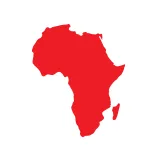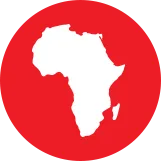A new report from ActionAid USA highlights the stark truth behind the global carbon market industry: it’s not working. The report, ‘Caution Required: Protecting Communities from Carbon Markets,’ exposes how carbon offset schemes routinely fail to reduce emissions while enabling corporate greenwashing, land grabs, and human rights abuses in the Global South. Recognizing that many countries in the Global South and communities are not interested in carbon projects because they think they work as a form of climate action, but because they present as a possible source of badly needed revenue. Developed in consultation with partners from ActionAid Liberia and ActionAid Kenya, the report aims to outline key considerations for governments and communities considering the sale of carbon credits through a market mechanism.
Drawing on case studies from Kenya and Liberia, the report documents a record of failed carbon credit projects as well as an infliction of violence and livelihood loss in communities in the Global South. Kenya and Liberia are in different stages of engagement, as Kenya has a long history of carbon credit projects, while Liberia is on the cusp of potentially major growth, with companies like Blue Carbon showing considerable interest.
Kitasi Wanga, Program Manager for Resilient Livelihoods and Emergencies, ActionAid Kenya, said:
“Kenya is at a crossroads. While carbon markets offer significant economic promise, the current reality reveals a troubling pattern of underperforming projects. Even after amending its regulatory frameworks, such as the Kenya Climate Change (Amendment) Bill 2023, to align with Article 6 of the Paris Agreement, we continue to observe a concerning trend where carbon market projects, far from reducing emissions or empowering communities, lead to displacement and compromise the lives and livelihoods of the most vulnerable, women and children. Without implementation of ambitious climate actions and commitments, the noble pursuit of conservation risks becoming a silent annexation of public land.”
Elizabeth Gbah-Johnson, Country Director of ActionAid Liberia, said:
“Carbon markets are not a suitable solution for rural communities in Liberia, where forests are central to people’s livelihoods and food security. Any government decision to engage in carbon trading must be guided by a human rights-based approach – one that prioritizes the voices and rights of women, young people, and local communities. Their full participation is not optional; it is essential to ensure that climate action does not come at the cost of social and economic justice.”
Key findings:
- Carbon markets don’t reduce emissions: Up to 90% of rainforest offset credits sold by Verra, a leading carbon registry, were “phantom credits”—worthless in terms of actual climate benefit.
- The math doesn’t add up: Most offset projects fail to deliver even 25% of their promised emissions reductions.
- Communities are being harmed: Over 100 documented cases in five years show carbon market projects linked to violence, displacement, and rights violations, especially impacting Indigenous peoples.
- Big profits, small returns for communities: In Kenya, only 2% of total project revenue reaches community conservancies, while middlemen, certifiers, and foreign companies pocket the rest.
- The accountability gap is growing: Host communities may end up liable for failed offsets, without ever consenting to the risks in the first place.
ActionAid is calling for:
- An end to offsets as a climate strategy
- Governments to ensure land rights and land tenure are protected and not given away as part of a carbon market project. Carbon markets are not climate finance and do not in any way lessen the climate finance obligations of rich countries
- Legal safeguards to ensure communities are not left holding the bag for failed credits.
Kelly Stone, Senior Policy Analyst, ActionAid USA, said:
“This is not just a policy failure—it’s a moral one. Communities are being pointed towards carbon markets to make up for the lack of real climate finance, all while climate impacts are increasing and climate action is becoming more urgent. Carbon markets are not climate finance, and they present a profound risk to communities that require extreme caution. Communities deserve real support and governments need the resources to provide public services, not false promises built on continued pollution.”
The full report is available here.
ENDS
Notes to editors
We have spokespeople in the surveyed communities who are available for media interviews and engagements. For media requests, please email christal.james@actionaid.org or call 7046659743.
About ActionAid
ActionAid is a global federation working with more than 41 million people living in more than 71 countries, including some of the world’s poorest countries. We want to see a just, fair, and sustainable world in which everybody enjoys the right to a life of dignity and freedom from poverty and oppression. We work to achieve social justice and gender equality and to eradicate poverty, including by shifting power to local organizations and movements.

